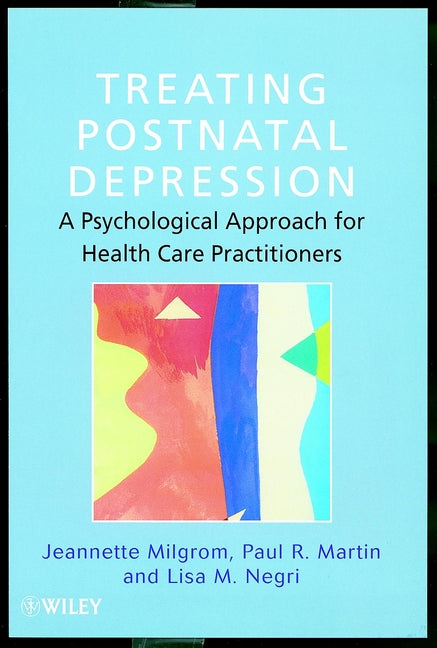Description
Condition: BRAND NEW
ISBN: 9780471986454
Year: 1999
Publisher: John Wiley & Sons (UK)
Pages: 304
Description:
When mothers feel depressed in the months after childbirth, their
feelings have often been dismissed as understandable reactions to
the stress of caring for a new baby, perhaps complicated by family
and marital demands. Most mothers cope, with varying degrees of
support and success, but for many the neglect and misunderstanding
of postnatal emotional problems can lead to long-term difficulties,
with implications for their families as well as for mental health
services. This book provides an understanding of depression
following childbirth which draws together current theories and a
synthesis of key research with a framework for intervention. It
provides a novel way of thinking about postnatal depression, and a
treatment program which is based on this model. The clinical
programs and interventions which are outlined have been found to be
effective at reducing postnatal depression. These programs are
aimed at developing coping skills in women which:
* Reduce the symptoms of postnatal depression
* Improve maternal functioning in terms of self-esteem,
assertiveness and coping
* Address marital and partner difficulties which often arise
* Deal with parent-infant difficulties the may exist
* Facilitate the use and development of existing social
networks
The authors have reviewed current knowledge on postnatal
depression, and given guidelines for best practice in a variety of
approaches to treatment and prevention, Included is a detailed
account of a tried-and-tested 10-week treatment program, together
with materials and resources that a busy clinician might need to
implement a similar program. Treating post
ISBN: 9780471986454
Year: 1999
Publisher: John Wiley & Sons (UK)
Pages: 304
Description:
When mothers feel depressed in the months after childbirth, their
feelings have often been dismissed as understandable reactions to
the stress of caring for a new baby, perhaps complicated by family
and marital demands. Most mothers cope, with varying degrees of
support and success, but for many the neglect and misunderstanding
of postnatal emotional problems can lead to long-term difficulties,
with implications for their families as well as for mental health
services. This book provides an understanding of depression
following childbirth which draws together current theories and a
synthesis of key research with a framework for intervention. It
provides a novel way of thinking about postnatal depression, and a
treatment program which is based on this model. The clinical
programs and interventions which are outlined have been found to be
effective at reducing postnatal depression. These programs are
aimed at developing coping skills in women which:
* Reduce the symptoms of postnatal depression
* Improve maternal functioning in terms of self-esteem,
assertiveness and coping
* Address marital and partner difficulties which often arise
* Deal with parent-infant difficulties the may exist
* Facilitate the use and development of existing social
networks
The authors have reviewed current knowledge on postnatal
depression, and given guidelines for best practice in a variety of
approaches to treatment and prevention, Included is a detailed
account of a tried-and-tested 10-week treatment program, together
with materials and resources that a busy clinician might need to
implement a similar program. Treating post

